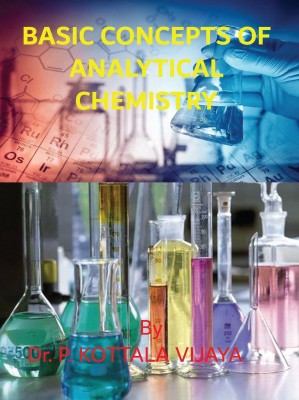Basic Concepts of Analytical Chemistry(English, Paperback, Dr. P. Kottala Vijaya)
Quick Overview
Product Price Comparison
As currently taught in India, introductory courses in analytical chemistry emphasize quantitative (and sometimes qualitative) methods of analysis along with a heavy dose of chemistry. Analytical chemistry, however, is much more than a collection of analytical methods and an understanding of chemistry; although analytical methods are important, their coverage should not come at the expense of other equally important topics. The introductory course in analytical chemistry is the ideal place in the undergraduate chemistry curriculum for exploring topics such as experimental design, sampling, calibration strategies, standardization, optimization, statistics, and the validation of experimental results. Analytical methods come and go, but best practices for designing and validating analytical methods are universal. Because chemistry is an experimental science it is essential that all chemistry students understand the importance of making good measurements. My goal in preparing this textbook is to find a more appropriate balance between theory and practice, between ŌĆ£classicalŌĆØ and ŌĆ£modernŌĆØ analytical methods, between analyzing samples and collecting samples and preparing them for analysis, and between analytical methods and data analysis. There is more material here than anyone can cover in one semester; it is my hope that the diversity of topics will meet the needs of different instructors, while, perhaps, suggesting some new topics to cover.


